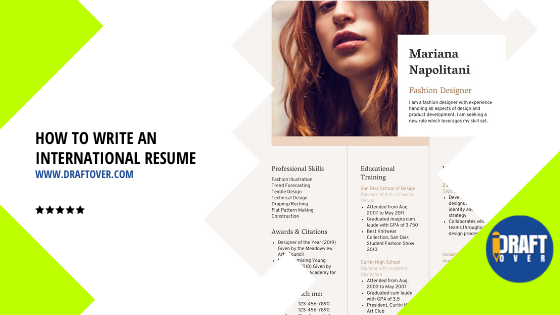How to Write an International Resume
There lies a vast difference between penning down an International Resume and a domestic resume. The reason being, International recruiters and collaborators often gives more importance to the style of documenting, aligning, structuring your resume that are industry-specific. Though there is no one-size-fits-all strategy for an international resume, having a prior knowledge of the nature and type of format will prove to be beneficial for all applicants and will be effective in an international work environment.Most job offers start with a good application and every good application is preceded by a thorough understanding of the demands and requirements of the employer. Before forwarding your resume, you can scan through these helpful tricks and tips to enhance your job applications.
The three most important guidelines to an International Resume are:
Individuality and Personality-
focus on your distinctiveness, originality that is an ideal match to your employer’s requirements.Industrial dexterity -
highlights your key expertise and proficiency in a particular domain that suits you best.Cross-cultural skills –
An insight to your employer about your ability to adapt to different cultures, competency in seamlessly acclimatizing with colleagues and engaging in healthy interactions.Best practices to follow while structuring your International Resume:
Since America and Britain are the most sought out destinations that house some of the giant companies, here is a short account of how to write your resumes, if applying in these foreign countries.
The American Resume /US resume includes:
What to avoid:
In the US, special notice should be given to the industry to which you are applying. A resume is usually a one-page long document highlighting your relevant qualifications for a specific position. On the other hand, a CV is a detailed overview of your overall accomplishments. A CV is only acceptable if the job pertains to an academic or research-oriented position.
The British CV
British CV includes:
What to avoid:
CVs in English-speaking countries are very similar; each country has its own nuances that must be observed for best results. Thus, before applying for a position in the United Kingdom a modern but professional format is to be maintained that will meet the recruiter’s expectations.
An efficient CV is not that difficult if prescribed rules are followed. However the requirements and expectations of the recruiters differ from one country to another. Therefore it is advisable to research methodically and if possible seek feedback from the country’s natives or your work colleagues before sending it to your employer.

